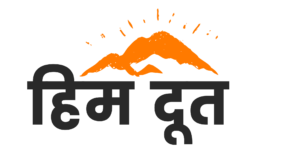Based on strengths of a district and National Priorities, One District One Product (ODOP) is seen as a transformational step forward towards realizing the true potential of a district, fuel economic growth and generate employment and rural entrepreneurship, taking us to the goal of Aatma Nirbhar Bharat. In this contest, an interaction with all States and UTs was held on 27th August, 2020 to discuss the implementation of One District One Product initiative, and Department for Promotion of Industry and Internal Trade (DPIIT) is working further on the initiative.
This information was given by the Union Minister of Commerce and Industry, Piyush Goyal, in a written reply in the Rajya Sabha today.
Further, Department of Commerce through DGFT is engaging with State and Central government agencies to promote the initiative of One District One Product. The objective is to convert each District of the country into an export hub by identifying products with export potential in the District, addressing bottlenecks for exporting these products, supporting local exporters, manufacturers to scale up manufacturing, and find potential buyers outside India with the aim of promoting exports, promoting manufacturing & services industry in the District and generate employment in the District.
As part of this initiative, an institutional mechanism is being set up in each District in the form of District Export Promotion Committees (DEPCs) that may be headed by DM/ Collector/ DC/ District Development Officer of the District and co-chaired by the designated Regional Authority of DGFT and various other stakeholders as its members. The primary function of the DEPC will be to prepare and act on District specific Export Action Plans in collaboration with all the relevant stakeholders from the Centre, State and the District level.
DGFT has also developed a portal that may be accessed on the DGFT website to enable the States to upload all information related to the products with export potential of every district. Portal has been developed and is currently being tested.
The Monsson session of Parliament will begin from Monday. The fourth session of 17th Lok Sabha and 252nd Session of Rajya Sabha is scheduledto be held on Monday, 14th September and subject to exigencies of Government Business, may conclude on Thursday, 1st October, 2020.
The Session will provide a total of 18 sittings spread over a period of 18 days (all the days including Saturdays and Sundays of the ensuing session will be working days) and a total of 47 items have been identified for being taken up during the Monsoon Session.
The total eleven Bills replacing the ordinance namely: The Farmers’ Produce Trade and Commerce (Promotion and Facilitation) Bill, The Farmers (Empowerment and Protection) Agreement on Prices Assurance and Farm Services Bill, The Homoeopathy Central Council (Amendment) Bill, The Indian Medicine Central Council (Amendment) Bill, The Essential Commodities (Amendment) Bill, The Insolvency & Bankruptcy (Second) Amendment Bill, The Banking Regulation (Amendment) Bill, The Taxation and Other Laws (Relaxation of Certain Provisions) Bill, The Epidemic Diseases (Amendment) Bill, The Salary and Allowances of Ministers (Amendment) Bill, The Salary, Allowances and Pension of Members of Parliament (Amendment) Bill are required to be passed during the ensuing Monsoon Session.
Further, some important pending legislations in the Houses required to be considered and passed during the Session.
Some other new bills likely to be introduced, considered and passed during this session are: The Bilateral Netting of Financial Contracts Bill, The Factoring Regulation (Amendment) Bill, The Pension Fund Regulatory And Development Authority (Amendment) Bill, The National Commission for Allied and Healthcare Professions Bill, The Assisted Reproductive Technology (Regulation) Bill, The Government of National Capital Territory of Delhi (Amendment) Bill, The Foreign Contribution (Regulation)Amendment Bill, The Representation of People (Amendment) Bill, The Prohibition of Employment as manual Scavengers and their Rehabilitation (Amendment) Bill, The Juvenile Justice (Care and Protection of Children) Amendment Bill, The Multi State Cooperative Societies (Amendment) Bill, The Jammu and Kashmir Official Language, Bill.
There are few bills for withdrawal during the session namely: The Allied and Healthcare Professions Bill, 2018, The Mines (Amendment) Bill, 2011, The Inter-State Migrant Workmen (Regulation of Employment and Conditions of Service) Amendment Bill, 2011, The Building and Other Construction Workers Related Laws (Amendment) Bill, 2013, The Employment Exchanges (Compulsory Notification of Vacancies) Amendment Bill, 2013.
This will be the first Parliament session being held amid the Covid-19 pandemic. Therefore all safety measures have been taken to conduct the session as per guidelines issued for Covid-19.
There will be a four-hour session for each House each day (9 am to 1 pm for Rajya Sabha and 3 pm to 7 pm for Lok Sabha. But on the first day only i.e. on 14th September of the Lok Sabha will meet in the morning session. The session will see other measures like seating MPs in a staggered way in chambers of both Houses, as well as galleries to maintain physical distancing norms, introduction of mobile app for registering of MPs’ attendance and seats separated with poly-carbon sheets in the House.
The Zero Hour will be there and the un-starred questionswill be laid on the table.




